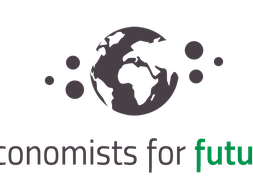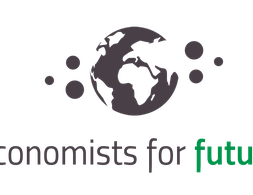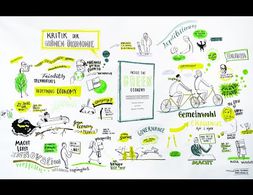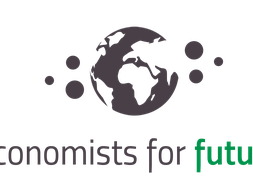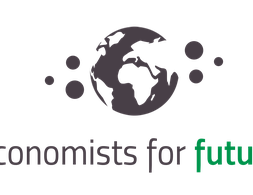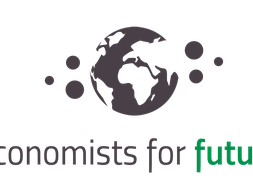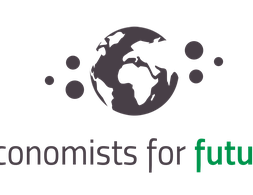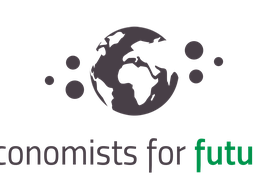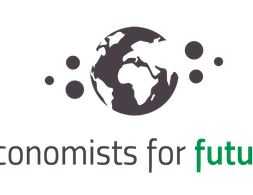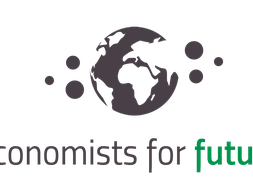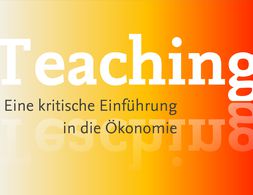276 Ergebnisse
Die enorm innovationsstarke deutsche Industrie ist in der Lage, viele der für die Erreichung von Klimaneutralität benötigten technischen Lösungen zu entwickeln und auf den Markt zu bringen. Dies ist jedoch kein Selbstläufer, sondern erfordert auch ein langfristiges Engagement der öffentlichen Hand. Ein Beitrag von Jan-Erik Thie und Benjamin Görlach.
Die scheinbare Eindeutigkeit der wirtschaftswissenschaftlichen Analyse von Maßnahmen gaukelt eine Berechenbarkeit vor, die nichts mit der Realität zu tun hat. Vielmehr braucht es gerade in der Klimapolitik einen Ansatz, der flexibel reagieren kann und gleichzeitig die Entwicklung neuer innovativer Lösungen befördert: das sogenannte agile Politikdesign.
Das Panel erörtert das Konzept einer grünen Wirtschaft, stellt insbesondere Kritiken an der grünen Wirtschaft vor und spricht dabei problematische Aspekte einer grünen Wirtschaft an.
Um die Klimakrise und ihre Ursachen wirklich zu bekämpfen, müssen die derzeitige Wirtschaftsweise grundlegender hinterfragt und Möglichkeiten einer sozial-ökologischen Transformation untersucht werden. Ein Beitrag von Elena Hofferberth.
Bei der Klimafrage müssen nicht nur ökologische, sondern auch gesellschaftliche Aspekte berücksichtigt werden. Denn ein dauerhaftes Makromanagement, das die Natur zwar preislich abbilden kann, dessen Richtungsbestimmung aber privatisiert bleibt, wird weder das Klima noch die Demokratie retten.
Exploring Economics, an open-source e-learning platform, giving you the opportunity to discover & study a variety of economic theories, topics, and methods.
Der Begriff „Subsistenz“ steht in seiner ursprünglichen Bedeutung für das „Bestehen aus sich selbst heraus“ bzw. Selbsterhaltung. Dies bildet den Bedeutungskern ganz unterschiedlicher Vorstellungen von „Subsistenz“ in der Fachliteratur (z. B. im Bielefelder Subsistenzansatz). Entgegen der üblichen Darstellungen soll „Subsistenz“ aber nicht z. B. auf Landwirtschaft, karges Leben oder feministische Aspekte reduziert sein, sondern für ganz unterschiedliche Wirtschaftsstile fruchtbar werden. Der modernen Subsistenzperspektive geht es vielmehr darum, Selbsterhaltung ganz allgemein als ein Grundmotiv des Wirtschaftens im theoretischen und praktischen (normativen) Rechtfertigungskontext zu thematisieren. Dafür sind aber begriffliche Spezifikationen notwendig.
Mit allerhöchster Wahrscheinlichkeit neoklassische Ansätze, denn diese dominieren das Studium der VWL heutzutage an den meisten Universitäten. Jedoch ist der Begriff 'Neoklassik' mittlerweile selbst zu einem Streitthema geworden. Verteidiger des Mainstreams verstehen Neoklassik zumeist eng und beziehen sich auf die ideengeschichtliche Entwicklung der allgemeinen Gleichgewichtstheorie (Jevons, Arrow und Debreu) sowie das Wachstumsmodell von Solow.
Der Klimawandel – beziehungsweise die Emission von Treibhausgasen – hat gegenläufige Effekte auf die gesellschaftliche Wohlfahrt. Einerseits emittieren wir Treibhausgase, um Wohlfahrt stiftende Aktivitäten auszuüben (Mobilität, Ernährung, Wärmeerzeugung etc.). Andererseits verändert die zunehmende THG- Konzentration klimatische Systeme, wodurch die Wohlfahrt der in der Zukunft lebenden Menschen beeinträchtigt wird. Klimaökonom*innen gehen der Herausforderung nach, die beiden Effekte zu quantifizieren und zu bestimmen, wie viele Treibhausgase zu welchem Zeitpunkt in der Zukunft emittiert werden sollten, damit die gesellschaftliche Wohlfahrt über mehrere Generationen hinweg maximiert wird.
Momentan findet in der Klimapolitik eine Verzögerungstaktik unter dem Vorwand „sozialer“ Gestaltung der Klimapolitik statt. Noch unsozialer wäre es jedoch, eine noch uneffektivere Klimapolitik zu machen. Der Grund dafür liegt in einem Zusammenhang von Ungleichheit und Klimawandel, den der englische Wissenschaftler Ian Gough im Journal of Social Policy unter dem Begriff „Dreifache (Un-)gerechtigkeit“ erläutert.
Gemäß der „vorsorgeorientierten Postwachstumsposition“ ist es ungewiss, wie sich die Wirtschaftsleistung entwickeln wird, wenn die Wirtschaftsweise in den wohlhabenden Ländern im Einklang mit globalen ökologischen Zielen grundlegend verändert wird. Andererseits spielen aufgrund der heutigen Verfasstheit der früh industrialisierten, wohlhabenden Länder die Wirtschaftsleistung und die damit generierten Einkommen eine wichtige Rolle. Daraus lässt sich das Ziel ableiten, diese gesellschaftlichen Institutionen nach Möglichkeit vorsorglich so zu transformieren, dass sie ihre Funktionen unabhängig(er) von der Wirtschaftsleistung erbringen können. Dies würde der Politik auch größere Spielräume bei Konflikten zwischen ökonomischen und ökologischen Zielen ermöglichen.
Prof. Yanis Varoufakis talks in this introductory lecture about the future of our economy and the current state of economics with special regard to pluralism in economics.
This is an overview of (possibly transformative) proposals to address the economic consequences of the corona crisis
This talk is an exploration of a feminist centred world, where women's labour, women's energy, women's contributions to the economy are not a side event but the main event.
Marx’s theory of the falling rate of profit is not only empirically borne out, but the theory he proposed seems to describe accurately how that happens. Furthermore, the whole process is useful for understanding the history of contemporary capitalism.
Michael Kalecki famously remarked “I have found out what economics is; it is the science of confusing stocks with flows”. Stock-Flow Consistent (SFC) models were developed precisely to address this kind of confusion. The basic intuition of SFC models is that the economy is built up as a set of intersecting balance sheets, where transactions between entities are called flows and the value of the assets/liabilities they hold are called stocks. Wages are a flow; bank deposits are a stock, and confusing the two directly is a category error. In this edition of the pluralist showcase I will first describe the logic of SFC models – which is worth exploring in depth – before discussing empirical calibration and applications of the models. Warning that there is a little more maths in this post than usual (i.e. some), but you should be able to skip those parts and still easily get the picture.
One of the pluralist theories which has gained prominence following the 2008 financial crisis is Hyman Minsky and his Financial Instability Hypothesis (FIH). Minsky was unique in viewing balance sheets and financial flows as the primary components of capitalist economies, and his focus on the financial system meant he was well-equipped for foresee a crisis much like 2008. Although he died long before 2008 his framework anticipated many of the processes which led to the crash, particularly increased risk-taking and financial innovation which would outstrip the abilities of regulators and central banks to manage the system.
Markets are the focus in modern economics: when they work, when they don’t and what we can or can’t do about it. There are many ways to study markets and how we do so will inevitably affect our conclusions about them, including policy recommendations which can influence governments and other major organisations. Pluralism can be a vital corrective to enacting real policies based on only one perspective and a plethora of approaches provide alternatives to the canonical view. Although they have differing implications, these approaches share the idea that we should take a historical approach, analysing markets on a case-by-case basis; and they share a faith in the power of both individuals and collectives to overcome the problems encountered when organising economic activity.
Firms are the primary places where economic activity takes place in modern capitalist economies: they are where most stuff is produced; where many of us spend 40 hours a week; and where big decisions are made about how to allocate resources. Establishing how they work is hugely important because it helps us to understand patterns of production and consumption, including how firms will react to changes in economic conditions and policy. And a well-established literature – led by post-Keynesians and institutionalists – holds that the best way to determine how firms work is to…wait for it...ask firms how they work. This a clearly sensible proposition that is contested in economics for some reason, but we’ll ignore the controversy here and just explore the theory that springs from this approach.
Economists like to base their theories on individual decision making. Individuals, the idea goes, have their own interests and preferences, and if we don’t include these in our theory we can’t be sure how people will react to changes in their economic circumstances and policy. While there may be social influences, in an important sense the buck stops with individuals. Understanding how individuals process information to come to decisions about their health, wealth and happiness is crucial. You can count me as someone who thinks that on the whole, this is quite a sensible view.
How countries achieve long-term GDP growth is up there with the most important topics in economics. As Nobel Laureate Robert Lucas put it “the consequences for human welfare involved in questions like these are simply staggering: once one starts to think about them, it is hard to think about anything else.” Ricardo Hausmann et al take a refreshing approach to this question in their Atlas of Economic Complexity. They argue a country’s growth depends on the complexity of its economy: it must have a diverse economy which produces a wide variety of products, including ones that cannot be produced much elsewhere. The Atlas goes into detail on exactly what complexity means, how it fits the data, and what this implies for development. Below I will offer a summary of their arguments, including some cool data visualisations.
The most successful multialternative theories of decision making assume that people consider individual aspects of a choice and proceed via a process of elimination. Amos Tversky was one of the pioneers of this field, but modern decision theorists – most notably Neil Stewart – have moved things forward. At the current stage the theories are able to explain a number of strictly ‘irrational’ but reasonable quirks of human decision making, including various heuristics and biases. Not only this, but eye movements of participants strongly imply that the decision-making process depicted in the theories is an accurate one.
In both economics textbooks and public perceptions central banks are a fact of life. On the wall of my A-level economics classroom there was the Will Rogers quote “there have been three great inventions since the beginning of time: fire, the wheel, and central banking”, summarising how many economists view the institution. There is a widespread belief that there is something different about money which calls for a central authority to manage its operation, a view shared even by staunch free marketeers such as Milton Friedman. This belief is not without justification, since money underpins every transaction in a way that apples do not, but we should always be careful not to take existing institutions for granted and central banking is no exception. In this post I will look at the idea of private or free banking, where banks compete (and cooperate) to issue their own currency.
Exploring Economics, an open-source e-learning platform, giving you the opportunity to discover & study a variety of economic theories, topics, and methods.
One method of economic modelling that has become increasingly popular in academia, government and the private sector is Agent Based Models, or ABM. These simulate the actions and interactions of thousands or even millions of people to try to understand the economy – for this reason ABM was once described to me as being “like Sim City without the graphics”. One advantage of ABM is that it is flexible, since you can choose how many agents there are (an agent just means some kind of 'economic decision maker' like a firm, consumer, worker or government); how they behave (do they use complicated or simple rules to make decisions?); as well as the environment they act in, then just run the simulation and see what happens as they interact over time.
Ziel dieser kritischen Einführung in die Volkswirtschaft ist es, auf knappem Raum unterschiedliche Sichtweisen auf wirtschaftliche Zusammenhänge darzulegen und damit die Basis für ein differenziertes Verständnis von Ökonomie und wirtschaftspolitischen Debatten zu liefern. In Zeiten einer integrierten Weltwirtschaft, rascher Veränderungen und internationaler Krisen liegt es nahe, Wirtschaft in ihrer internationalen Dimension in den Mittelpunkt zu stellen, anstatt wie gehabt meist nationale Ökonomien isoliert zu betrachten. Miteinander asymmetrisch verbundene Entwicklungen und Veränderungen in Nord und Süd, die auf globaler sowie zwischen nationaler und regionaler Ebene stattfinden, stellen somit einen zentralen Bezugspunkt dar. Daher der Titel des Buches: Ökonomie und internationale Entwicklung.
A historical glimpse of how economists of the 19th century debated the usefulness of mathematics to economics
The general idea of a Job Guarantee (JG) is that the government offers employment to everybody ready, willing and able to work for a living wage in the last instance as an Employer of Last Resort. The concept tackles societal needs that are not satisfied by market forces and the systemic characteristic of unemployment in capitalist societies. Being a central part of the Modern Monetary Theory (MMT), attention for the JG concept rose in recent years.
If there’s one method economists have neglected the most, it’s qualitative research. Whereas economists favour mathematical models and statistics, qualitative research seeks to understand the world through intensive investigation of particular circumstances, which usually entails interviewing people directly about their experiences. While this may sound simple to quantitative types the style, purpose, context, and interpretation of an interview can vary widely. Because of this variety, I have written a longer post than usual on this topic rather than doing it a disservice. Having said that, examples of qualitative research in economics are sadly scant enough that it doesn’t warrant multiple posts. In this post I will introduce qualitative research in general with nods to several applications including the study of firm behaviour, race, Austrian economics, and health economics. More than usual I will utilise block quotes, which I feel is in the spirit of the topic.
Ziel dieses Seminars ist, eine Einführung in die wissenschaftstheoretischen und methodischen Grundlagen der Sozial- und Wirtschaftswissenschaften zu bieten.
The world is regularly shaken by crises some are bigger others are smaller in scope Local turmoil military conflicts commodity scarcity bank runs health threats the history of mankind can be written as a history of crises Three major global crises occurred in the last fifty years alone the oil …
Mainstream economic narratives notably the concept of comparative advantage trade theory which assumes the equal balance of power between parties are deployed to support the merits of Global Value Chains that the global integration via trade creates mutual gains for both developed and developing countries This narrative is advanced in …
Wir nutzen Cookies. Klicke auf "Akzeptieren" um uns dabei zu helfen, Exploring Economics immer besser zu machen!

